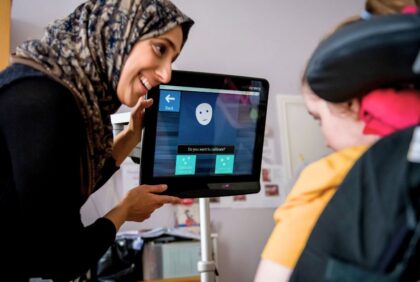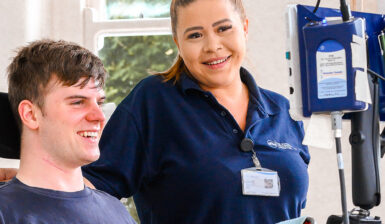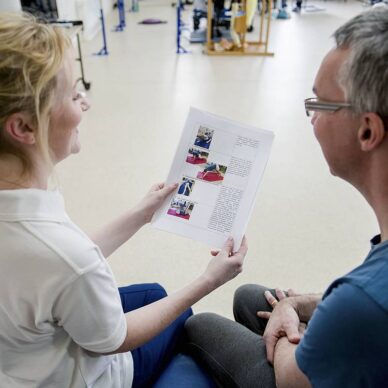
Types of Brain Injuries We Treat
- Concussion & Mild Brain Injuries – Addressing lingering cognitive and physical effects.
- Traumatic Brain Injury (TBI) – Resulting from external force, such as falls, accidents, or sports injuries.
- Acquired Brain Injury (ABI) – Including strokes, brain tumors, infections, and oxygen deprivation.
Our approach to rehabilitation is tailored to each patient’s unique needs, incorporating:
- Neurological Physiotherapy – Enhancing mobility and strength.
- Cognitive Rehabilitation – Improving memory, problem-solving, and communication.
- Speech & Language Therapy – Supporting speech and swallowing recovery.
- Occupational Therapy – Assisting with daily activities for greater independence.
- Psychological Support – Addressing emotional and mental well-being.
Interactive Therapy
When areas of the brain are damaged, other regions can take over their roles, forming new pathways within healthy brain cells. Digital therapy is an effective way to encourage this reorganization:
- MindMotionGO: A virtual, game-based exercise system that engages patients in an interactive environment, improving movement, balance, and cognitive abilities.
- Tyrosolution Pablo & Tymo: Devices designed to enhance movement and motor function, supporting physical rehabilitation.
- Intento PRO: Controlled electrical stimulation therapy that helps stimulate muscle activity and improve physical function.
MindMotionGO offers a dynamic and engaging therapeutic environment, motivating users to continue their exercises. This helps improve mobility, posture (standing and sitting), and cognitive function. Additionally, other therapies provide complementary benefits, such as correcting neurological conditions and enhancing mobility mapping.
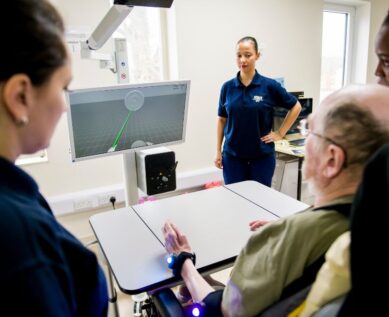
Interaction can be hands free
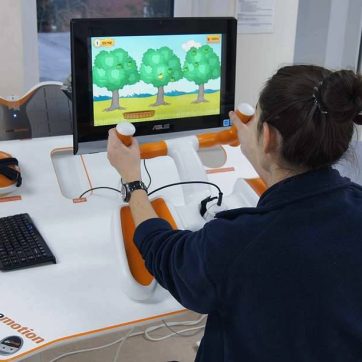
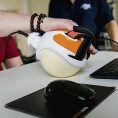
A Combined Approach
The latest technology has brought a paradigm shift in rehabilitative techniques. Not least by improving the level of intuitive control patients with brain injuries have.
Motivation is heightened and essential repetitive movements no longer feel repetitive, although skilled human input remains important.
Apart from training and direct support on equipment use, our team can make gradual adjustments as you improve. Customising and calibrating environments to bring further progress.
In the same way that our speech and language therapists might mix off and on screen elements, physical therapists meld the two options together. Exercises in a gym can compliment those in the virtual world.
Rather than provide a list of separate activities, a good rehabilitation programme will ensure they are each part of the same, personally designed programme.
Individual Support
From initially advising on an approach tailored to your needs, to seeing this become reality, the rehab team are there for you.
They are aware of the wide requirements brain injury rehabilitation can create. From improving thinking processes, to coping physically and relearning essential skills.
Therapy can be intensive and tiring, as you encourage your brain to find new ways of working. Staff develop a rapport with you, helping them to be aware of times a little extra support is required.
Alongside being skilled professionals, they are people and share your wish to see change. Your choices and ambitions become their motivation, to find ways to make them reality.
Whether a brain injury is recent, or more historic, progress can be made. Through a combination of your determination, modern technology and knowledgeable support.
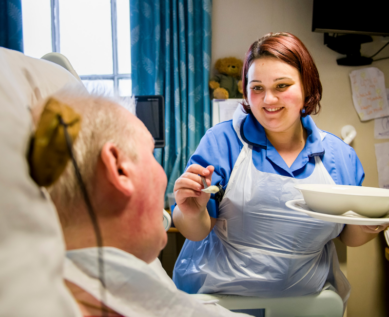
Controlled exercise helps
Our Facilities
Our patients and the people who care for them deserve the finest facilities, to ensure effective rehabilitation.
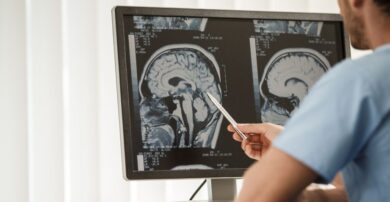
An adjacent hospital
The Royal Bucks rehabilitation centre is separate, although having our hospital in the same building can be helpful. A state of the art facility, with around 60 consultants covering every aspect of medicine.
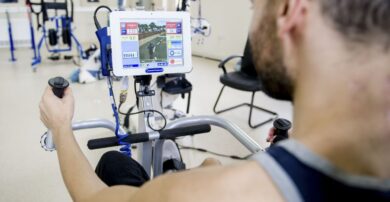
Advanced technology
Our centre is amongst the best equipped in Europe, with an anti-gravity facility based on NASA designs, varying types of exoskeleton, laser therapy and high tech aids for neurological rehabilitation.
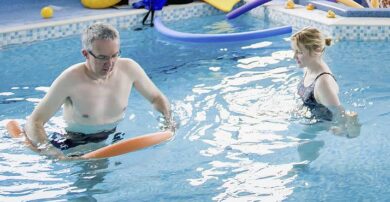
Hydrotherapy pool
An 8.5 metre pool heated to 34 centigrade, with resistance jets for exercise and a jet massage. The pool provides accessibility for all, with slides and hoists built in and is supported by experienced staff .
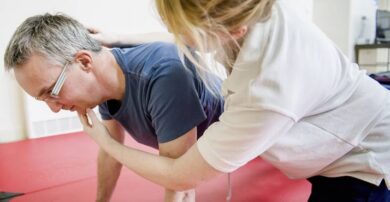
Skilled Physiotherapy
Physiotherapy is recognised for the value this is able to bring after trauma, or surgery. Where longer term conditions apply, our physios are leaders in the field and play an important role in recovery.
Get Started on Your Recovery Journey
If you or a loved one is recovering from a brain injury, we’re here to help. Contact us today to learn more about our rehabilitation programs and start your journey toward independence.
Speak to our team today
Get in touch to book an appointment, for further information, or to ask any question you wish. All contact is handled securely and confidentially.
Call us on
01296 678800
Email us
